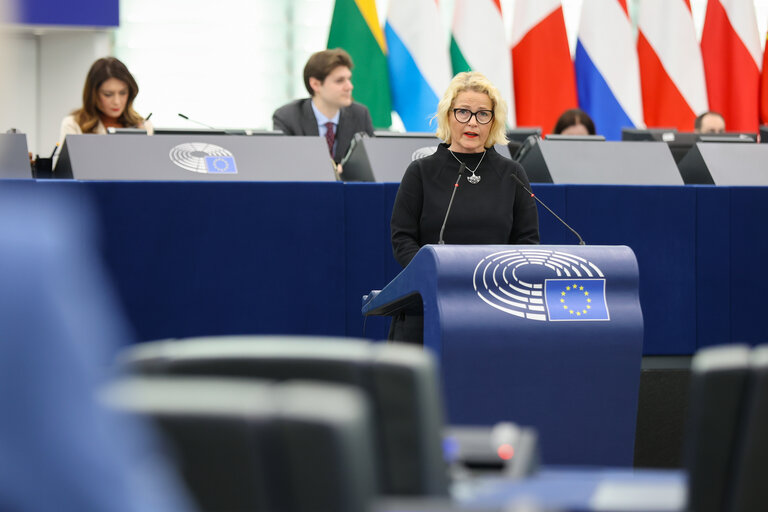Madam President, I’m sorry to be only now here. Physical travel from Finland took a bit longer in France. But this winter, the competitiveness of the European industry and economy have been a great cause of political discussion due to high energy prices, the war on the continent and the upheaval of the global supply chains. We need to enact more robust European industrial policy fit for this challenge in the world to create more decent jobs and welfare.
The Data Act is a key element on the regulatory side to give a push for European data innovations and data markets to be created. We need a clear framework to enable fair and open utilisation of data by private businesses, consumers and the public sector. The single market is Europe’s greatest power and the source of the ‘Brussels effect’. So by shaping the emerging data market now, we are showing that the global data market can reflect the European objectives of competition, consumer protection and democratic rules.
Dear colleagues, it is a historic day. We will create a new right by legislation. When buying or renting a product that produces data, an enterprise or consumer will not only be a source and object for data collection, but will have a right to the data the use of the product provides. Doesn’t it sound reasonable? Yes, it does. Is it a fact today? No, it is not. So let’s do this and there will be a right for the user to know what data the use of the machine is collecting and providing and have a say how it can be used. This will unleash a lot of data for the new services and hopefully also disruptive innovations. Some estimates say that 80% of this so-called industrial data is unused in silos.
I am very happy already to see companies in health and hospitals working for better ways to use data for our good. I was very delighted to talk to farmers who are waiting for this to happen and thinking of the ways they can utilise the data produced in their own farms. Repair services are there to employ more people as we will reduce waste and material use by better repair possibilities. The efficient use of, and fair access to, data will provide a new competitive edge for many SMEs in Europe.
I am confident also that this legislation will be useful if something serious like the pandemic happens. There will be well framed rules in place to use data to help society through public sector action to work for the best of citizens.
I want to thank the rapporteur, the Commissioner and many colleagues and so many others around Europe who believed in this fair data economy already when we wrote together the brave vision for the European Data Strategy, including these business-to-business data sharing rules. So, colleagues, I urge you all to vote in favour so we can start trilogues as soon as possible.




